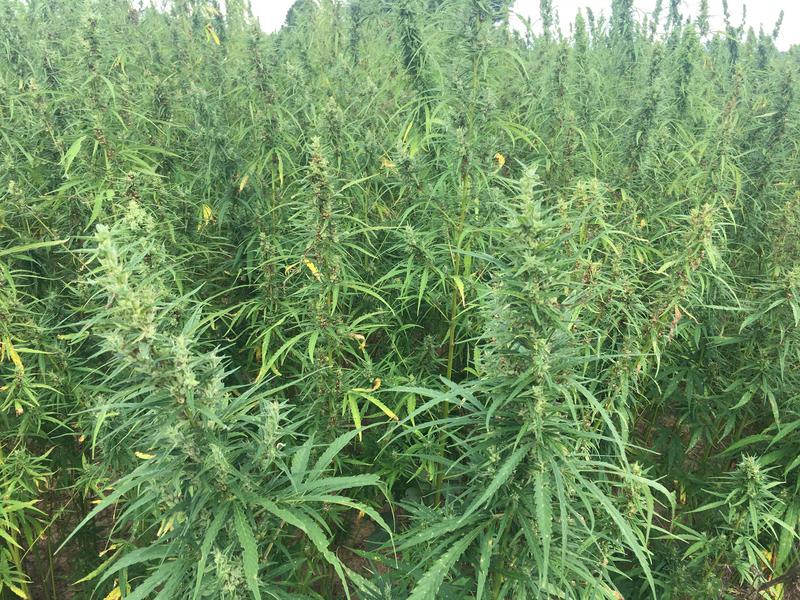Source: wkms.org

A Maryland-based HempWood company is in the process of opening a plant in Murray, Kentucky. Greg Wilson is the founder of Fibonacci. The company uses a technology derived from the bamboo industry located in China and “SmartOak” technology from Tasmania, Australia.
Wilson is 50 percent owner of SmartOak, which uses logs that would otherwise be converted to wood chips to create an engineered wood product.
Wilson spent nine years helping to build 53 plants in China using his background in materials science. He said he wanted to find a U.S. sourced plant fiber that could be grown quickly, like bamboo, to manufacture in the U.S. He said after the 2014 Farm Bill made provisions for hemp to be allowed for research purposes, he started experimenting to see if it could also mimic the properties of wood.
“I started my research in 2014 and I actually started it in my house, to the point I kicked out my roommate and took over the basement and turned it into my lab,” Wilson said.
Later, he increased his scale of operations by moving into a building on a farm; where he said he tested hemp from Nevada, Pennsylvania, North Carolina and Kentucky.
“Honestly, the reason that I went to Kentucky is they picked up the telephone,” Wilson said. “I started looking at where I could find raw materials once I had all the IPs [intellectual property] filed and Dr. Brannon answered the phone.”
Wilson said Tony Brannon, Dean of Murray State University’s Hutson School of Agriculture, invited him to west Kentucky. While other places were only able to show around five acres of hemp production, Wilson said Murray State was able to provide contacts to hemp farmers growing hundreds and thousands of acres of potential product. He said the university also helped connect him to the Kentucky Department of Agriculture and apply for his processing license.
Wilson has created an algorithm that he said mimics the growth cycle and final attributes of an oak tree. He said his algorithm can determine a product’s output as far as hardness, density and stability using various plant fibres.
“The final attributes of a plant are based off of mainly the density, so when you have a more dense wood it is a harder more stable product. So, because the density of fast growing plants, which are more eco- friendly and is typically lower, we have to increase that density,” Wilson explained. “In order to do that you need to fill the voids in the cell structure of the plant, so we use adhesives.”
Wilson said he hopes to use an agriculture-based adhesive produced mainly from soy.
Wilson said he hopes to use an agriculture-based adhesive produced mainly from soy.
He said Fibonacci produces mostly building materials and his largest volume is flooring. “All of the IPs are still pending,” Wilson said. “We set it up so we can do this around the world. So, we set up our U.S. patents as well as our international patents and the plan is to do licensing overseas but do all of our manufacturing in the United States.”
Through his algorithm, he said, he can process hemp to be around 20 percent more dense than Oak, making HempWood a more sustainable product.
“HempWood utilizes hemp stalks which grow in six months to replace oak which takes 60 years.”
Wilson said he has contracted 800 tons of hemp stalks through growers in west Kentucky by working with Murray State University. He plans to be operational by the first quarter of 2019.
No comments:
Post a Comment